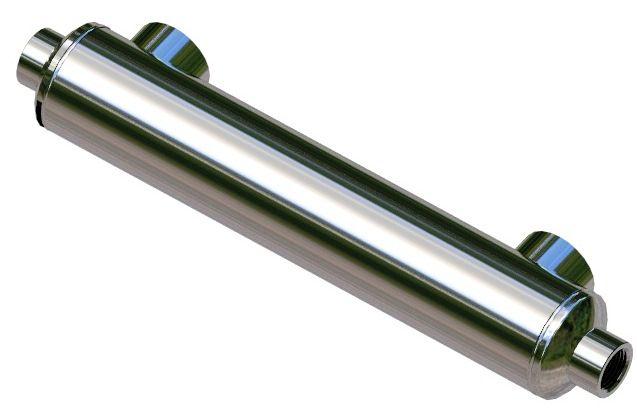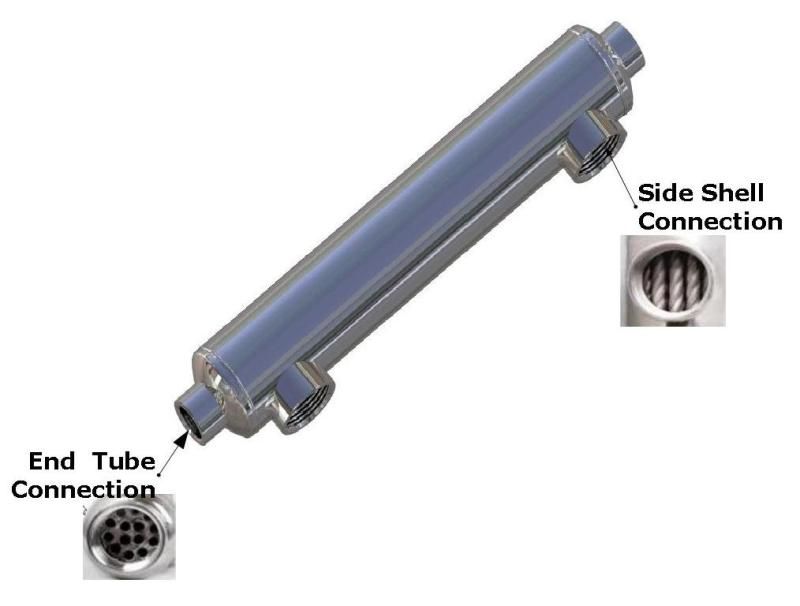Are you looking for a solar pool heat exchanger?
Have a pool or spa with an additional amount of chlorine and bromine?
If yes, then a flat plate solar heat exchanger isn’t suitable for you.
This is where a specially designed high flow heat exchanger comes in
handy. It can be able to handle the higher secondary side flow and high
levels of chlorine.
This
heat exchanger has better flow characteristics; so it makes a good
alternative to a solar pool heating system. If you’re using a pool
heater for applications that use salt water, it’s suggested to use a
titanium solar pool heat exchanger. This heat exchanger is highly
resistant to chlorine and saltwater.
Why Do You Use a Solar Pool Heat Exchanger?

When
it comes to investing in solar pool heat exchangers, you should look no
further than Northern Lights solar pool heat exchanger. It’s
specifically designed o work at high secondary side fluid velocities
with low drops in pressure.
This heat exchanger unit is engineered with a helical coil tube design which makes it unique from other shell and tube heat exchangers available on the market. It features exceptional design and delivers efficient heat transfer performance, allowing for diverse ranges of applications.
If you want to increase the performance of the solar pool heat exchanger, you should get it installed in a counter-current flow method. However, the hot or heating fluid flows through the tube or primary side whereas the cold or heated fluid flows through the shell of the secondary side. For swimming pool purposes, the pool water flows through the shell and the boiler water flows through the tube side.
The
pool heat exchanger features high heat exchanger tubes and a smooth
shell. It delivers high velocities inside the unit, making the system
highly efficient, reliable and affordable way of indirect heat transfer
between any solar heating or boiler circuit and any pool or spa circuit
apart from other applications.

The helical tube bundles are present in Titanium and 316L stainless steel. Stainless steel bundles aren’t ideal for high levels or sea or saltwater purposes. The titanium tube bundles are perfect to use in these circumstances.
What are the special features?
- Co-efficiency up to 14000 w/m2 deg C and heat exchanging capacity three to seven times than the traditional equipment
- Compact configuration, taking small area, which is one-tenth as the traditional equipment
- Made from stainless steel and titanium material enduring high temperature, pressure and corrosion
- Helix screw thread elasticity heat exchange bundle which eliminates the stress
- 5.5 m/s design flex speed and less dirt
- A big volume of flow
- Easy installation procedure and durability
- ASME standard VIII-1
What are the main applications?
The Smaller pool heat exchanger is SP 155K which is typically combined with your existing pool heating system and solar system. It will do really well in maintaining water temperatures initially provided by an auxiliary heat source like a gas heater. The total heat exchange surface area is 3.66 ft2 or .34 M2.
The
larger pool heat exchanger is SP 300K, which can be used with a larger
size solar system like the primary heating system. The sizing of the
pool collectors is really important to operate the solar pool heater
properly. The total heat exchange surface area is .65 M2 or 7 ft2.
Bottom Line –
Want to learn more about solar pool heat exchangers? If yes, then you should contact Northern Lights Solar Tubs as soon as possible at +1 (800) 317-9054.
Comments
Post a Comment